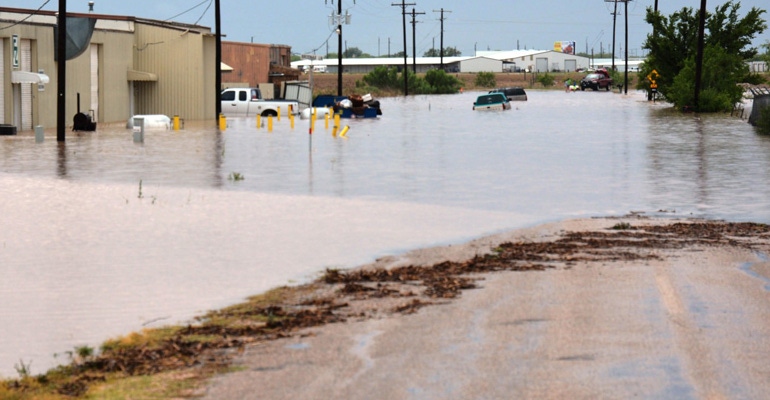June 22, 2018

With days of flooding forecast for the southeastern coastal region of the state, Texas A&M AgriLife Extension Service experts remind residents to be vigilant and make preparations for their safety.
“While we can’t keep natural disasters like floods from occurring, there’s still a lot we can do to prepare for them and keep ourselves and our families safe during and after,” said Dr. Monty Dozier, AgriLife Extension special assistant for Rebuild Texas, College Station.
Dozier said to avoid being trapped by a flood, evacuate before flooding starts.
“Potentially heavy rainfall is expected across the coastal areas of Texas over the next few days from rains and runoff,” he said. “Stay safe and be sure to closely monitor severe weather conditions Listen to the radio, TV or NOAA Weather Radio and follow directions from local officials regarding evacuation and, if need be, seek high ground if you experience localized flooding in your area. Be prepared to evacuate quickly and know your routes and destinations and where there’s an emergency shelter.”
He said a good preparation measure is to fill bathtubs, sinks and jugs with clean water in the event the regular water supply becomes contaminated due to flooding.
“Move valuable belongings to upper floors or to safe ground if time permits,” he said. “If instructed by authorities, turn off all utilities.”
He said residents should avoid flooded areas and keep away from moving water, whether on foot or in a vehicle.
“Take extra precautions and drive more slowly when it’s raining,” Dozier said. “Flash flooding is the No. 1 weather-related killer in Texas, and almost 50 percent of all flash flood fatalities nationwide involve vehicles. If you’re in a vehicle and come to a flooded area, always remember to turn around, don’t drown. A vehicle can be swept away by just a few inches of moving water.”
Dr. Joyce Cavanagh, AgriLife Extension family and community health specialist, College Station, said Texans in areas affected by flooding should prepare a family evacuation plan and practice it.
“People should also have an emergency kit for their home, office and each vehicle,” Cavanagh said. “The kit should contain enough supplies to take care of immediate family members for at least three days.”
She said some essential kit contents include bottled water, non-perishable foods, a hand-operated can opener, mouth/nose protection masks, extra clothing, first-aid kit, gloves, blankets, toiletries, battery- or hand-powered flashlight, weather radio, spare batteries, garbage bags, medications and anti-bacterial cleaners or wipes.
Dozier and Cavanagh said the Texas Extension Disaster Education Network, Texas EDEN, at https://texashelp.tamu.edu/ has various materials related to disaster preparation and recovery, as does the AgriLife Extension Bookstore at https://www.agrilifebookstore.org/.
“With this software you can actually simulate what could happen if there was a major flood or storm surge,” Jacob said. “The CHARM platform relies on nearly 3 dozen mapping layers and over 100 indicators that show current and future trends based on what-if scenarios that participants create. Feedback is in real time as participants make changes to their community.”
So far, Jacob and Mikulencak have provided 18 workshops in 16 counties and have customized the platform for 40 communities. There have been 624 attendees to date, representing offices of emergency management, local officials, first responders, planners, businesses, local departments and active community members.
“While some progress has been made, more major changes in development planning along the Texas coast are needed to address serious flooding,” Jacob said. “We hope to help get coastal and other communities affected by flooding to plan and employ measures to where a flood can be seen as an inconvenience instead of a disaster.”
For more information on CHARM programs, go to https://tcwp.tamu.edu/charm/.
About the Author(s)
You May Also Like




